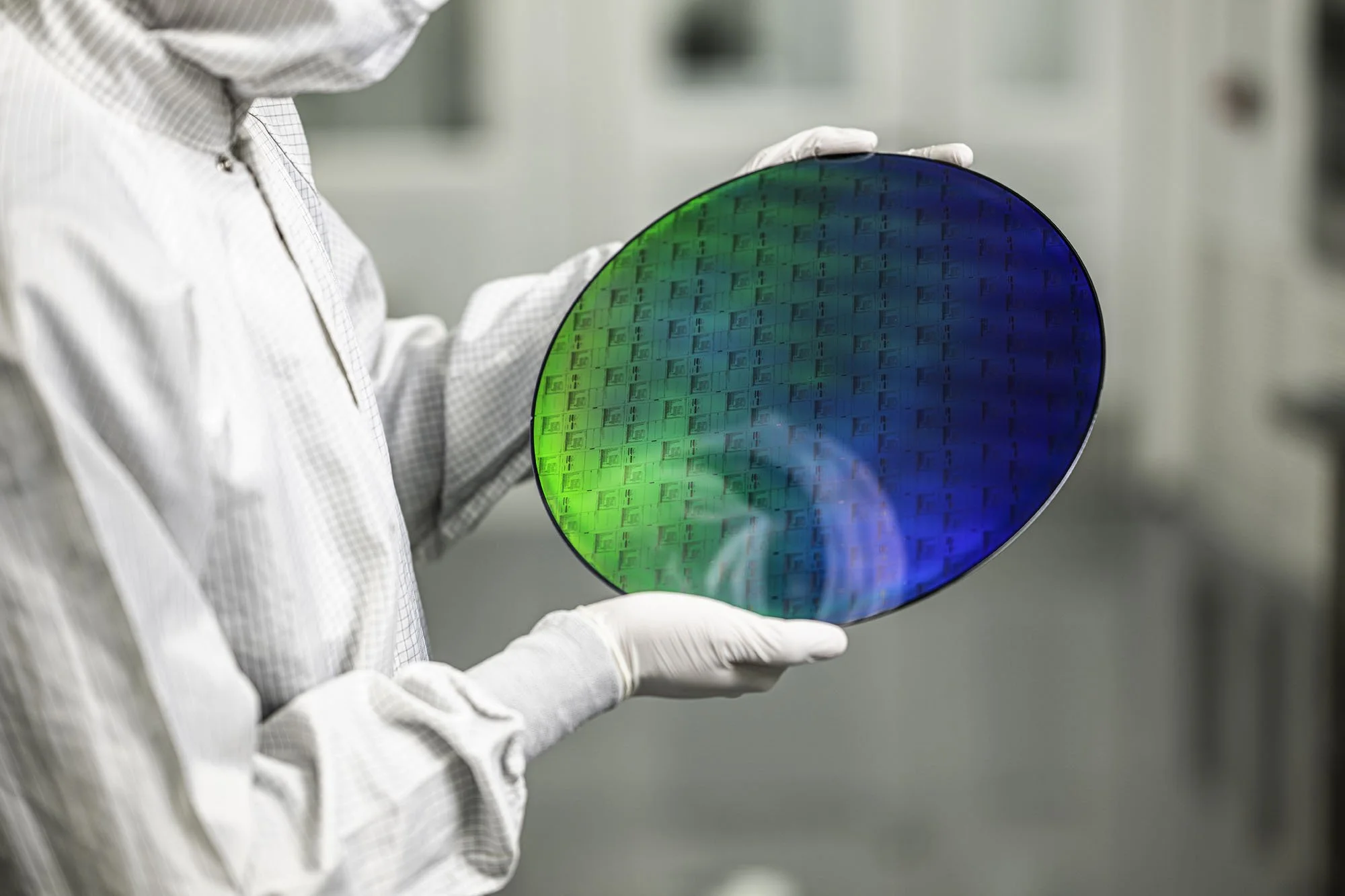PsiQuantum plans to build world’s first large scale fault tolerant million qubit quantum computers for solving some of the world’s most complex scientific problems
By Wayne Williams
Copyright techradar

Skip to main content
Tech Radar Pro
Tech Radar Gaming
Close main menu
the business technology experts
België (Nederlands)
Deutschland
North America
US (English)
Australasia
New Zealand
View Profile
Search TechRadar
Expert Insights
Website builders
Web hosting
Best web hosting
Best office chairs
Best website builder
Best antivirus
Expert Insights
Don’t miss these
IBM and AMD are coming together to ‘build the future of computing’ and yes – it’s all about quantum computing
I am an AI expert and here’s why quantum artificial intelligence is the next big thing in tech
A new trick for merging lasers with silicon could finally make photonic chips cheap, fast, and ready for mass production
Why you should care about quantum
US startup set to test new CPU that could herald the era of Exaflop on a single chip – I still can’t believe Neurophos’s OPU claims to deliver 234 POPS with a 1000 Petaflops model planned
A tiny firm wants to slash energy consumption by changing the way CPUs are designed – and it is even planning a new high performance server chip
Cyber resilience in the post-quantum era: the time of crypto-agility
OpenAI’s Sam Altman is dreaming of running 100 million GPUs in the future – 100x more than it plans to run by December 2025
Pizza-sized chips are the future of AI accelerators, researchers concur – but heat remains a huge problem
Google’s most powerful supercomputer ever has a combined memory of 1.77PB – apparently a new world record for shared memory multi-CPU setups
Clever ‘light switch’ breakthrough could make hyperscale networks 1000x faster, just in time for AGI and superintelligence
This chip designer you’ve never heard of reveals first thermodynamic silicon in a bid to reduce AI’s unsustainable energy consumption
States, prefectures, cities, and villages: how one tiny Japanese CPU maker is taking a radically different route to making processors with thousands of cores
Fujitsu is teaming with Nvidia to build probably the world’s fastest AI supercomputer ever at 600,000 FP8 Petaflops – so Feyman GPU could well feature
AMD sheds more light on 128-GPU MI355X DLC rack that will deliver 2.4 Exaflop at FP4 precision – here’s how it compares with Nvidia’s flagship Vera Rubin
PsiQuantum plans to build world’s first large scale fault tolerant million qubit quantum computers for solving some of the world’s most complex scientific problems
Wayne Williams
16 September 2025
$1 billion of new funding will help the startup create utility scale quantum systems in the US and Australia
When you purchase through links on our site, we may earn an affiliate commission. Here’s how it works.
(Image credit: Alex Mack / PsiQuantum)
PsiQuantum to build utility scale systems in Brisbane and Chicago with new funding
Company expands photonic chip production and develops Barium Titanate switches for quantum scaling
Cooling and networking systems designed for data center style racks to support million qubits
PsiQuantum has announced that it has raised $1 billion of Series E funding to further its goal of building fault-tolerant quantum computers at the scale of one million qubits.
The company plans to create sites in Brisbane and Chicago for large-scale prototypes and begin work on utility-scale systems.
Founded on the idea that commercially valuable quantum computing requires error correction, PsiQuantum has focused its approach on photonic qubits.
You may like
IBM and AMD are coming together to ‘build the future of computing’ and yes – it’s all about quantum computing
I am an AI expert and here’s why quantum artificial intelligence is the next big thing in tech
A new trick for merging lasers with silicon could finally make photonic chips cheap, fast, and ready for mass production
Overcoming scaling challenges
It believes that by combining photon-based quantum technology with the manufacturing capabilities of semiconductor fabs, it can overcome scaling challenges that continue to slow progress in the field.
These include manufacturability, cooling systems capable of handling thousands of chips, and reliable networking between modules.
“Only building the real thing – million-qubit-scale, fault-tolerant machines – will unlock the promise of quantum computing,” said Jeremy O’Brien, co-founder and chief executive officer.
“We defined what it takes from day one, this is a grand engineering challenge, not a science experiment. We tackled the hardest problems first – at the architectural and chip level – and are now mass-manufacturing best-in-class quantum photonic chips at a leading US semiconductor fab. With this funding, we’re ready to take the next decisive steps to deliver the full potential of quantum computing,” he added.
Are you a pro? Subscribe to our newsletter
Sign up to the TechRadar Pro newsletter to get all the top news, opinion, features and guidance your business needs to succeed!
Contact me with news and offers from other Future brandsReceive email from us on behalf of our trusted partners or sponsorsBy submitting your information you agree to the Terms & Conditions and Privacy Policy and are aged 16 or over.
“Nearly nine years after we started, we have pushed the technology to an unprecedented level of maturity and performance,” Pete Shadbolt, co-founder and chief scientific officer, said.
“We have the chips, we have the switches, we have a scalable cooling technology, we can do networking, we have found the sites, we have the commercial motive and the government support – we’re ready to get on and build utility-scale systems.”
PsiQuantum has already built a high-volume manufacturing process for its integrated photonic chipsets, designed in-house and fabricated at GlobalFoundries’ Fab 8 in New York.
You may like
IBM and AMD are coming together to ‘build the future of computing’ and yes – it’s all about quantum computing
I am an AI expert and here’s why quantum artificial intelligence is the next big thing in tech
A new trick for merging lasers with silicon could finally make photonic chips cheap, fast, and ready for mass production
It has also developed new electro-optic switches by including Barium Titanate in its chip production.
These switches are considered critical for scaling optical quantum systems and could also be applied in AI supercomputers that require high-speed, low-power networking.
At the same time, PsiQuantum is designing cooling and control systems that resemble data center racks rather than traditional cryostats.
The company has already demonstrated networking between quantum cabinets using standard telecom fiber, which it says is a requirement for large-scale deployment.
It’s impossible until it’s not. – YouTube
You might also like
AMD gets ready for Nvidia Vera Rubin with 432GB MI400 GPU monster
Quantum computing explained: what it means for cybersecurity
The next leap for the technology sector: quantum computing
Wayne Williams
Social Links Navigation
Wayne Williams is a freelancer writing news for TechRadar Pro. He has been writing about computers, technology, and the web for 30 years. In that time he wrote for most of the UK’s PC magazines, and launched, edited and published a number of them too.
You must confirm your public display name before commenting
Please logout and then login again, you will then be prompted to enter your display name.
IBM and AMD are coming together to ‘build the future of computing’ and yes – it’s all about quantum computing
I am an AI expert and here’s why quantum artificial intelligence is the next big thing in tech
A new trick for merging lasers with silicon could finally make photonic chips cheap, fast, and ready for mass production
Why you should care about quantum
US startup set to test new CPU that could herald the era of Exaflop on a single chip – I still can’t believe Neurophos’s OPU claims to deliver 234 POPS with a 1000 Petaflops model planned
A tiny firm wants to slash energy consumption by changing the way CPUs are designed – and it is even planning a new high performance server chip
Latest in Pro
SK Hynix’s HBM4 will be the first out of the gate for Nvidia’s Rubin AI GPU, leaving Samsung and Micron in its wake
Chinese malware is flooding GitHub pages – HiddenGh0st, Winos and kkRAT hit devs via SEO poisoning
CISA blasted by US watchdog for wasting funds and retaining the wrong employees
China launches probes into U.S. chip restrictions, citing discrimination and dumping concerns
Researchers uncover huge IPTV piracy network spanning 1,000 domains and 10,000 IP addresses – here’s what you need to know
AI has the potential to fix the developer experience – here’s now to make it happen
Latest in News
Battlefield 6 will be better for everyone thanks to the Xbox Series S
Amazon teases major hardware launch – here are 5 things to expect, from new Echos to Kindles
I can’t stop rewatching Christopher Nolan’s best movie, and the good news? It’s free to stream
I’ve moved on from Microsoft’s Xbox controllers, but this new feature is something I’ve wanted for years on Windows 11
The Apple Watch’s new hypertension upgrade lands in watchOS 26 today – here’s why it’s a big deal and which models are compatible
Your Apple TV 4K gets a free upgrade to tvOS 26 today – here are 5 changes to try
LATEST ARTICLES
PsiQuantum plans to build world’s first large scale fault tolerant million qubit quantum computers for solving some of the world’s most complex scientific problems
I’ve tested tons of soundbars, and my most anticipated 2025 launch is a small model that could finally deliver awesome Dolby Atmos – and it’s not from Sonos
I’ve moved on from Microsoft’s Xbox controllers, but this new feature is something I’ve wanted for years on Windows 11
Researchers find a way to address the problem of AI forgetting how to behave safely
LG brings Xbox to cars – but you’ll sadly have to put up with Zoom calls too
TechRadar is part of Future US Inc, an international media group and leading digital publisher. Visit our corporate site.
Contact Future’s experts
Terms and conditions
Privacy policy
Cookies policy
Advertise with us
Web notifications
Accessibility Statement
Future US, Inc. Full 7th Floor, 130 West 42nd Street,
Please login or signup to comment
Please wait…



